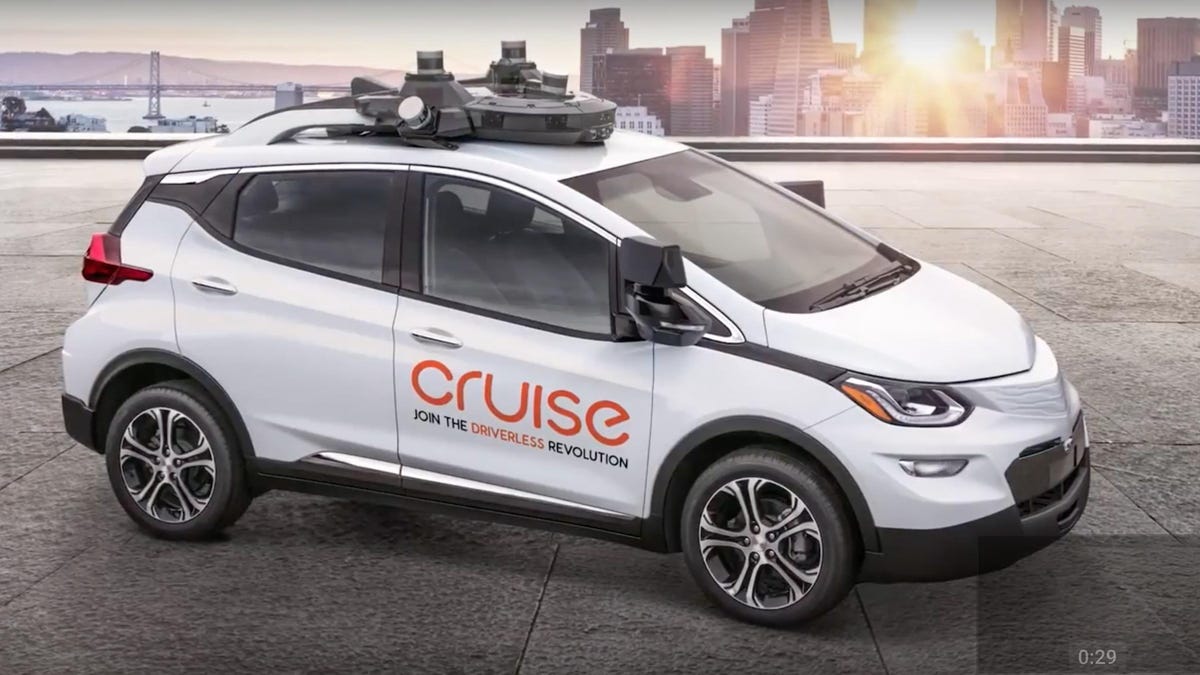GM's Cruise Robotaxi Unit Starts Offering Driverless Rides in Austin, Phoenix
The self-driving car unit is now operating in three cities after first launching in San Francisco.

GM's Cruise robotaxi service uses retrofitted Chevrolet Bolt EVs.
Cruise, the self-driving car unit of General Motors, has begun offering its driverless taxi service to Austin, Texas and Phoenix. The service, which uses retrofitted Chevrolet Bolt EVs, on Tuesday announced that it's now available in the three US cities after launching in San Francisco over the summer.
"In both Phoenix and Austin we completed our first paid rides for members of the public," Cruise CEO Kyle Vogt tweeted on Tuesday. "Just like in SF, we've started with a small service area and will expand gradually. But since we've already done this in SF it will happen much faster in these new cities."
In both Phoenix and Austin we completed our first paid rides for members of the public. Just like in SF, we’ve started with a small service area and will expand gradually. But since we’ve already done this in SF it will happen much faster in these new cities.
— Kyle Vogt (@kvogt) December 20, 2022
The service will be available initially to friends and family members of company employees, but it will eventually open up to the general public. In Phoenix, Cruise joins Waymo, which began operating a robotaxi service in the suburb of Chandler in 2018.
The expansion comes amid increased scrutiny of autonomous vehicles. In August, California's Department of Motor Vehicles accused electric carmaker Tesla of false advertising in promoting its Autopilot and Full Self-Driving features as providing autonomous vehicle control.
Cruise's autonomous driving system is also under regulatory scrutiny. The National Highway Traffic Safety Administration announced earlier this month it had opened an investigation into the cars' self-driving technology, saying in a filing it had received complaints of the cars engaging in "inappropriately hard braking" or becoming "immobilized while operating."

